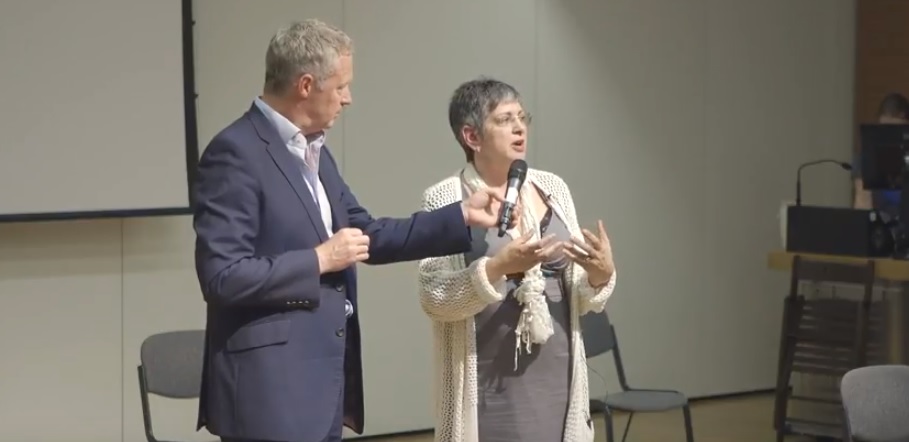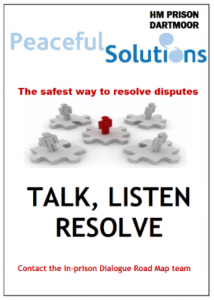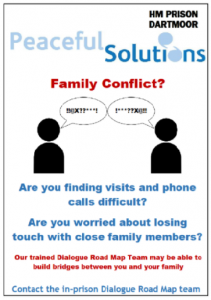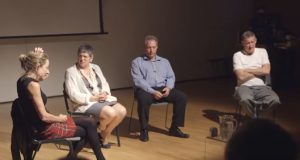
After years of working in UK prisons and witnessing the transformative impact of the Dialogue Road Map on prisoners, I found myself coming back to the same question: “How can prisons become places of opportunity and change, not failure and shame?”
At a time when around 30% of prisoners re-offend within a year of release from prison, and with incidents of violence within prisons at records, new approaches to prison reform are urgently required.
Two years ago, a meeting with the Governor of HMP Dartmoor, Bridie Oakes-Richards, and her senior team, helped to shape what a solution to my question might look like. The Governor shared our vision to introduce a pioneering approach, educating all members of the prison community in the Dialogue Road Map and building a restorative prison community based on strong relationships, trust and open communication.
One year on, after a successful fundraiser where friends and supporters rallied for our cause – and with support from the Allen Lane Foundation – and, more recently, the Tedworth Trust – our work began in earnest.
Over the last year, we’ve:
- Undertaken an audit of communications and conflict within the prison, to use as a baseline against which to measure progress
- Trained 3 cohorts of prisoners and prison officers as DRM facilitators
- Had over 10 cases conducted by prisoner mediators
- Placed a prisoner facilitator to assist with induction
- Begun a prisoner family mediation project, helping to build relationships between prisoners and their families and resolve disputes.
You can watch some of the highlights of our fundraising event for Dartmoor Prison here.
The Dialogue Road Map mentioned in the inspection report
After an unannounced inspection in August 2017, the inspection report was published in December 2017 and makes a number of positive references to how our work is starting to create change within HMP Dartmoor:
- “Some innovative conflict resolution strategies were being embedded. Some staff and prisoners were trained in “dialogue road mapping”, a new tool developed by the Centre for Peaceful Solutions to encourage non-violent communication. They could be called on to mediate in disputes. The well-publicised initiative was explained to men on their induction.”
- “The new and innovative ‘dialogue road mapping’ initiative and use of mediation supported men in resolving disputes and tensions without using violence.”
- “The chaplaincy offered very good pastoral support. The team was involved in the induction process, spending every Monday morning with new arrivals to discuss their attitudes to the integrated regime and highlight interventions like the dialogue road map, a form of mediation, which the new managing chaplain had helped to introduce.”
- “There were several initiatives to support family contact, including family conferencing (a mediated formal meeting to promote dialogue and understanding).”
The journey’s not always been easy, and securing funding to sustain our work is a constant challenge, but it’s one to which we’re fully committed.


We have big plans for next year in the prison and we’d love to share them with you.
If you’re interested in learning more about our Dartmoor journey or becoming a supporter, please get in touch.
